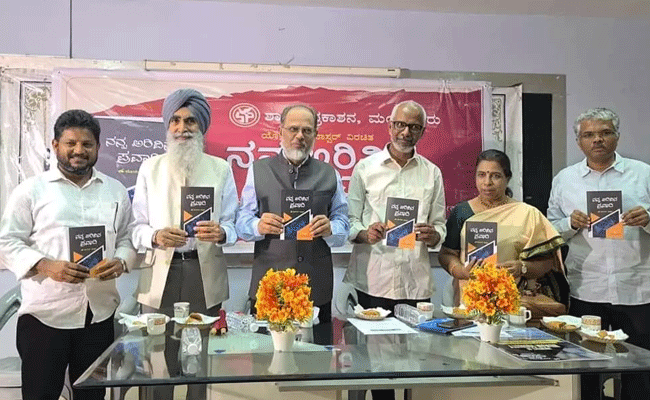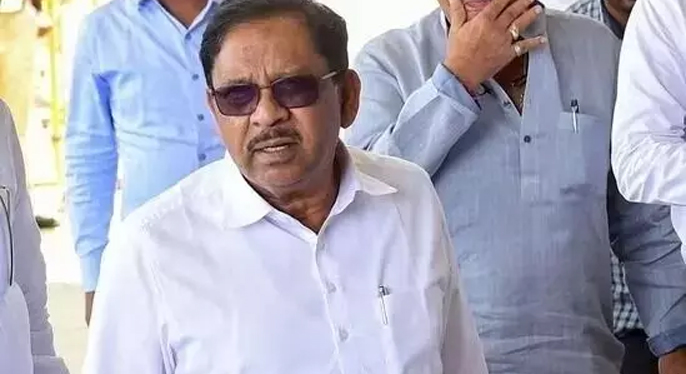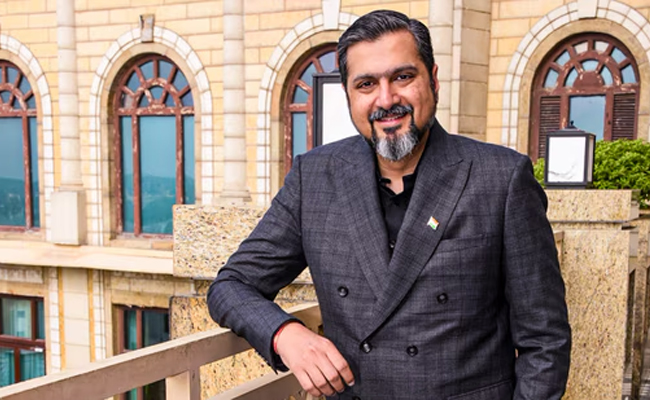Yogesh Master's book, "Nanna Arivina Pravadi” was launched during an event at the BIFT Auditorium in Bengaluru on Thursday. This event was organized by Shanti Prakashana Mangalore, in association with the "Seerat-ul-Nabi (PBUH) campaign on the theme 'Architect of Human Equality - Prophet Mohammed' under the auspices of Jamaat-e-Islami Hind Karnataka.
Chiranjeevi Singh, Retired Chief Secretary of the Government of Karnataka, released the book. Singh highlighted that the book deviated from the conventional biographical approach, choosing instead to explore the realm of emotions and experiences. He underscored the book's purpose, which sought to deepen the comprehension of the teachings of various prophets and the universal message of unity transcending religious boundaries.
Singh also accentuated the pivotal theme of "Sarva Janangada Shantiya Tota" (Peace for All Humanity) that resonates throughout the book.
Acknowledging the waning interest in reading in contemporary society, Charan Jeevi Singh advocated for the digital dissemination of the book and proposed its translation into multiple languages to ensure its accessibility to a wider global audience.
Raghunath Cha.Ha, the Executive Editor of Sudha and Mayura Kannada Monthly, contributed insightful commentary on the book. He praised on its pertinence in conveying vital lessons for the construction of an upright and wholesome society. He commended its role in nurturing brotherhood and dispelling prevailing myths surrounding Islam and Islamophobia. The book, in his perspective, served as a testament to the peaceful and integrative essence of Islam.
Dr. Vasundhara Bhupathi, former President of Kannada Pustaka Pradhikara, delivered her insights on the book's contribution to fostering peace and serenity in society.
Author Yogesh Master shared his insights, depicting Prophets as guiding lights during periods marked by discrimination and violence. He portrayed Prophet Muhammad not merely as a spiritual leader but as a multifaceted figure - a social engineer, scientist, and psychologist. Master accentuated the harmonious confluence of devotion exhibited by adherents of different faiths.
Mohammad Kunhi, Secretary of Jamaat-e-Islami Hind Karnataka, introduced the mission of Shanti Prakashna - educating Kannada speakers about Islam while dispelling misconceptions. The unwavering commitment of Shanti Prakashna to publishing books that foster harmony among diverse communities was notably emphasized.
Dr. Muhammad Saad Balgami, President of Shanti Prakashana and Ameer of Jamaat-e-Islami Hind Karnataka, delivered the presidential address. He underscored the transformative potential of the Holy Prophet's (PBUH) teachings in engendering peace and tranquility in society, making life more beautiful and navigable. Dr. Balgami urged the audience to engage in an in-depth study of the life of the Holy Prophet (PBUH).
The event commenced with a recitation and translation by Muhammad Abdul Wajid Hussain, while Mohammed Danish served as the convener, and Nawaz of Shanti Prakashana extended the vote of thanks.
Let the Truth be known. If you read VB and like VB, please be a VB Supporter and Help us deliver the Truth to one and all.
Kolkata (PTI): Seven people were arrested from the Parnashree area in the southern part of the city for allegedly running a fake call centre, a police officer said on Saturday.
Acting on a tip-off, police raided a house on Netaji Subhas Road on Friday night and found the fake call centre operating from the ground floor, he said.
Preliminary investigation revealed that the accused had set up a bogus company using forged documents and posed as employees of an antivirus firm to call citizens in the US, the officer said.
"The callers would gain the trust of victims and then use remote access to take control of their phones or other digital devices. The accused allegedly siphoned off large sums of money, running into millions of dollars, from victims' accounts," he said.
Five laptops, two WiFi routers, six mobile phones and four headsets were seized from the accused, he said, adding that the seven are being questioned to ascertain the full extent of the racket and to identify others involved.





